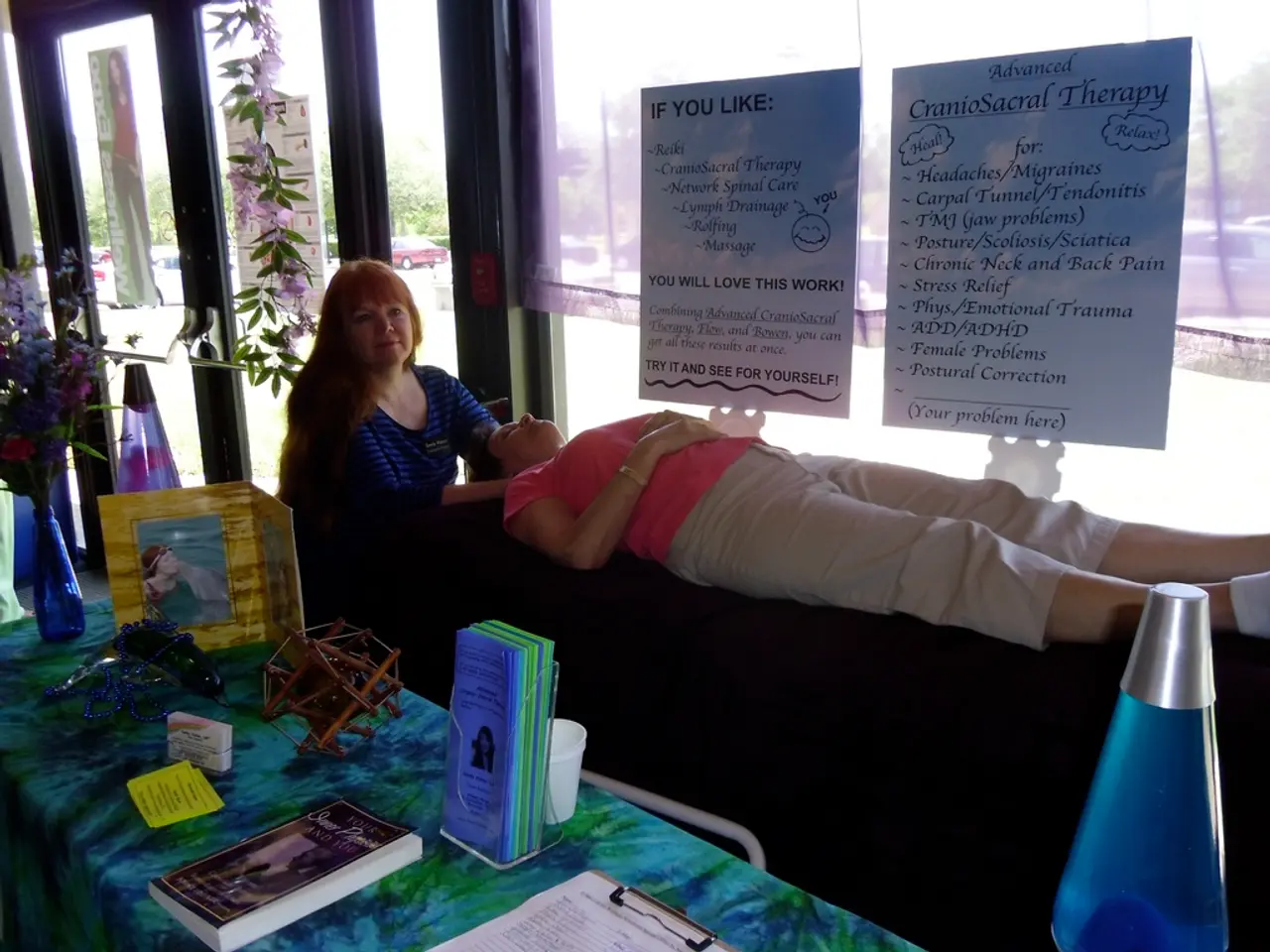Navigating Obstacles in Overinvolved Connections
Identifying and Coping with Enmeshed Relationships: A Guide
Enmeshed relationships, characterized by blurred or non-existent personal boundaries and emotional over-involvement, can negatively impact mental and emotional health. In romantic, platonic, and family contexts, these relationships share common signs and coping strategies.
Identifying Enmeshment
Enmeshed relationships often exhibit signs such as a lack of clear personal boundaries, difficulty making independent decisions, and an imbalanced emotional reliance or control. High conflict and chronic instability are also common, with repetitive cycles of guilt, anxiety, or blame. In romantic relationships, enmeshment often overlaps with codependency, while in family relationships, it can manifest as unhealthy emotional entanglements. In platonic relationships, excessive emotional entanglement without healthy boundaries is less discussed but still prevalent [1][3][5].
Coping Strategies
- Increase Awareness and Education: Understanding enmeshment and differentiating healthy closeness from unhealthy over-involvement is crucial. Recognizing patterns of asymmetry, vulnerability, or codependency that often accompany enmeshed dynamics can help identify enmeshed relationships [1][3][5].
- Establish and Assert Boundaries: Clearly defining personal limits regarding emotional sharing, time, and decision-making is essential. Communicating boundaries respectfully but firmly in all types of relationships can help establish autonomy [3][5].
- Develop Individual Identity and Autonomy: Engaging in activities and relationships that affirm your personal interests and values independent of the enmeshed relationship can help reinforce your individuality. Reflecting on your emotions and needs, differentiating them from those imposed by others, is also important [4].
- Enhance Relational Skills: Cultivating open, honest communication, asking questions, and expressing feelings without criticism can transform relationship dynamics. Practicing empathy without losing self-boundaries is key [4].
- Seek Professional Support: Couples or family therapy can address chronic instability and asymmetrical power dynamics. Individual therapy helps build self-awareness and coping strategies for enmeshment and codependency [1][5].
- Gradual Distance and Restructuring: Creating emotional or physical space to reduce dependence and foster healthier interdependence can be beneficial. Restructuring interactions to allow for mutual respect and decreased control or caretaking roles can also help [5].
- Self-care and Support Networks: Building and maintaining friendships or support groups that reinforce healthy boundaries and self-care practices can provide emotional support. Regularly engaging in activities promoting mental and emotional well-being can help avoid burnout from enmeshed relationships [3][4].
By using these strategies, individuals can identify when enmeshment is present and take practical steps to establish autonomy, healthier boundaries, and more balanced, fulfilling relationships in romantic, platonic, and family contexts. Practicing saying "no" without guilt, setting limits on emotional caretaking, and reflecting on personal needs are all effective ways to protect mental well-being in enmeshed relationships. When attempts to set boundaries are consistently met with resistance, guilt-tripping, or dismissal, taking a step back from a relationship may be necessary. Breaking out of an enmeshed relationship doesn't mean sacrificing connection, but rather redefining it in a way that honors both people equally.
- A licensed therapist might guide couples in addressing enmeshment, as it can significantly affect mental health, by helping them establish personal boundaries and promote autonomy in their relationships through couples therapy.
- In the domain of education-and-self-development, resources on mental-health, lifestyle, and personal-growth can offer insights into recognizing and coping with enmeshed relationships, shedding light on the science behind these dynamics and providing practical strategies.
- Managing anxiety stemming from enmeshed relationships can be challenging, but engaging in health-and-wellness activities, such as meditation and exercise, can help individuals maintain their mental health while working towards resolving the issue.
- Fostering self-awareness, autonomy, and healthy emotional boundaries in relationships doesn't negate the importance of emotional support; in fact, establishing healthy relationships with a support network can contribute to overall well-being and personal growth.
- Seeking professional guidance through therapy is an essential aspect of coping with enmeshment, providing individuals with the tools and knowledge necessary to navigate their relationships effectively, promoting a more balanced, fulfilling, and mentally healthy lifestyle.




